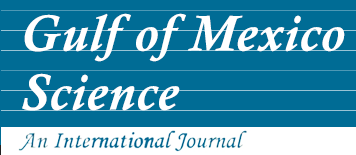Alternate Title
Establishment of the Invasive Island Apple Snail Pomacea insularum (Gastropoda: Ampullaridae) and Eradication Efforts in Mobile, Alabama, USA
Abstract
Species invasions are thought to be among the most detrimental of all anthropogenic disturbances. Invasive consumers severely impact native ecosystems through the consumption of and competition with native species. Worldwide, snails of the Family Ampullaridae have successfully colonized a wide range of habitats outside their native range. This is of great ecological concern because once established, these snails frequently exhibit rampant herbivory in the recipient ecosystem. Here, we chronicle the recent invasion of island apple snails (Pomacea insularum; d’Orbigny 1837) in a tributary of the Mobile–Tensaw Delta, Alabama, in order to establish a baseline against which future assessments of apple snail expansion can be measured. In addition, we discuss the current, albeit largely unsuccessful, efforts to eradicate these invaders post-invasion as well as the possible implications of the continued growth of this population should geographic expansion occur. We also provide the first genetic evidence, from the mitochondrial cytochrome c oxidase I (COI) sequence, positively identifying these snails as P. insularum. All individuals were identical for COI and genetically identical to invasive animals in Georgia and portions of Florida, as well as native animals near Buenos Aires, Argentina, indicating a possible secondary invasion from nearby invasive U.S. populations but, ultimately, an Argentinian origin. Based on our evidence, we suggest that the best control measures for apple snail invasions include increased proactive enforcement to prevent future invasions elsewhere in the southeastern United States (and similar areas), the adoption of research into new management strategies designed to prevent future invasions and slow the spread of established invasive populations, and rapid and overwhelming control and eradication efforts at the first sign of invasion.
Recommended Citation
Martin, C. W., K. M. Bahya and J. F. Valentine.
2012.
Establishment of the Invasive Island Apple Snail Pomacea insularum (Gastropoda: Ampullaridae) and Eradication Efforts in Mobile, Alabama, USA.
Gulf of Mexico Science
30
(1).
Retrieved from https://aquila.usm.edu/goms/vol30/iss1/5

